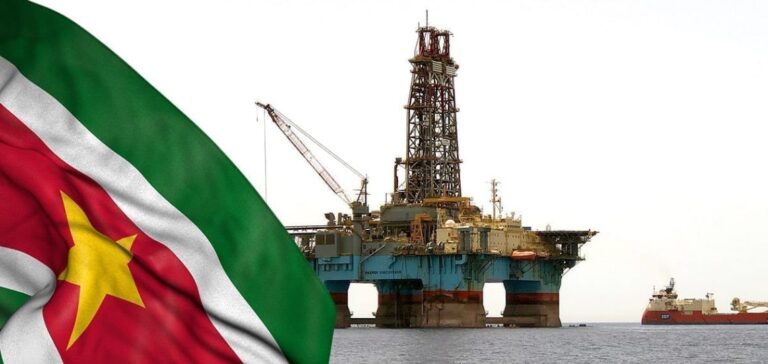Suriname, a coastal country in South America, is ramping up efforts to establish itself as a key player in the offshore oil sector. According to an analysis by Rystad Energy, at least 10 wells will be drilled between 2025 and 2026, with cumulative investments reaching $9.5 billion over this period. The surge in exploration is driven by the growing interest of international oil companies in the country’s hydrocarbon potential.
Development of Block 58: A key project
Among the major initiatives is the development of Block 58, operated by TotalEnergies in partnership with APA Corporation. This project, named GranMorgu, received a $10.5 billion investment approval in October 2024 and aims to produce over 700 million barrels of recoverable resources from the Sapakara and Krabdagu fields. Production is scheduled to begin in the first half of 2028, with a capacity of 200,000 barrels per day.
Staatsolie, Suriname’s national oil company, holds a 20% stake in the GranMorgu project. To finance its share, estimated at $2.4 billion, Staatsolie plans to combine loans, internal funds, and bond issuance. This strategic participation could generate approximately $700 million in annual revenue for the company, doubling its size and tripling its turnover to $1.77 billion by 2029.
Intensification of deepwater exploration
Meanwhile, Shell, in collaboration with QatarEnergy, plans to drill the Araku Deep-1 exploration well in Block 65 in the second quarter of 2025, pending environmental approvals. This drilling is part of a broader program including up to four exploration wells, aimed at assessing the country’s deepwater oil potential.
Offshore exploration in Suriname is also benefiting from the involvement of Chevron and Petronas. Petronas is currently conducting a 3D seismic survey on Blocks 52 and 63 to better delineate the potential of its discoveries. These initiatives are enhancing the country’s attractiveness to international investors, strengthening its role in regional energy development.






















